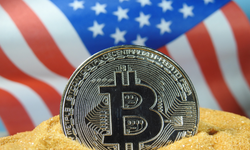Coinbase was sued by the SEC in June for allegedly operating as an unregistered exchange, broker and clearing agency. Coinbase withdrew those allegations, arguing for dismissal of the lawsuit and accusing the regulator of taking a "regulation-by-enforcement approach."
Coinbase attorney William Savitt researched how securities are defined and noted the difference between "investing in Beanie Baby Inc. and buying Beanie Babies."
In its June complaint, the SEC said tokens such as SOL, ADA, MATIC, FIL, SAND, AXS, CHZ, FLOW, ICP, NEAR, VGX, DASH and NEXO were securities.
Savitt noted that Coinbase never claimed that tokens listed on its website could never be considered securities.
"We do not accept the view that token transactions can never be investment contracts," he said, adding that the SEC did not make any allegations in its lawsuit that would meet the definition of an investment contract.
He also said that Coinbase agrees with the SEC that a formal contract signed by the buyer is not necessary to enter into an investment contract. However, he said that just because token buyers read white papers and other information about token projects doesn't mean they are buying investment contracts.
Savitt also rejected the SEC's argument that token sales on Coinbase should be considered investment contracts because token projects may have made certain promises to buyers and buyers may have purchased tokens in the hope of a price increase.
"There needs to be a statement that is intended to convey an enforceable promise. This is the irreducible minimum of what can be considered an investment contract."
The Coinbase lawyer said that what really differentiates blockchain tokens from securities is that the person who buys stock, whether directly from an issuer or in the secondary market, receives all the rights that those securities give to the holder, but this is not the case for tokens.














